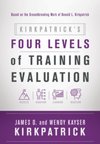
-
 Anglický jazyk
Anglický jazyk
Sustainable Business Strategy
Autor: Andrew Grantham
This book embraces the idea that, in the 21st Century, there is no single prescription for business strategy development, choice and implementation. The challenges facing firms, not-for-profit organizations and the public sector are significant... Viac o knihe
Na objednávku, dodanie 2-4 týždne
40.46 €
bežná cena: 44.95 €
O knihe
This book embraces the idea that, in the 21st Century, there is no single prescription for business strategy development, choice and implementation. The challenges facing firms, not-for-profit organizations and the public sector are significant and call for creativity, inclusivity, diversity and responsibility. The worldview that all products and services should be organized predominantly around external and internal markets has recently been shown to have significant limitations. For example, in the age of Covid-19, global supply chains cannot be maintained as borders close and demand patterns change. There is also a realization that whilst markets may be efficient in the allocation of resources in a world of infinite economic growth, the looming and deepening crisis of climate change, UN Sustainable Development Goals, pandemics and diversity have exposed the risks associated with this market worldview and the indicators that drive it such as GDP, stock market values, return on investment, executive remuneration, etc. This book augments and challenges existing texts to offer a progressive, challenging, decolonized and plural business strategy curriculum.
The book is premised on the following:
- what we know about strategic analysis, choice and implementation needs updating and revision;
- there is a role for the market in a healthy and future-oriented economy, global or otherwise;
- the exchange relationships between stakeholders are changing. These changes are being prompted by major global institutions such as the United Nations, the European Union and new entities such as The Network for Greening the Financial System (NGFS) of 60+ central banks;
- there are conscious and unconscious forces working against a change agenda such as lobbies; free-market thinking and short-term bottom-line reporting; willful ignorance, etc.;
- firms can mitigate climate change (such as procurement of clean energy, shortening supply chains);
- firms need to adapt (building resilience for the near future);
- governments may legislate for circular and/or environmentally-sustainable economies;
- good strategy is built on a plurality of analytical epistemologies and ontologies;
- non-market factors are increasingly important;
- new and appropriate financial indicators for decision-making are needed.
Each chapter of the book takes what is known - theory, tools, techniques - introduces contemporary critiques, relates those critiques to the context of climate change and UN SDGs and offers fresh thinking about the application of the models and outcomes. For example, a key element of strategic analysis is the stakeholder. Stakeholder management retains the premise that profit is the primary purpose of firms. It can be shown empirically that treating stakeholders better - whether they be customers, suppliers, employees - improves firm performance and hence the bottom line. In this framework, some indicators of performance and timeframes may need to change or be augmented, but ultimately the core stakeholders such as shareholders will be rewarded by endorsing such an approach. There remains a neo-liberal critique of the stakeholder approach; but a progressive view might extend the scope of stakeholder analysis by incorporating hitherto excluded entities (not just individuals and groups). What if the natural environment itself becomes a stakeholder? How would that affect stakeholder analysis and what new indicators should practitioners be using to balance the demands of different stakeholders? What might this mean in practice?
Unlike other books, there are no stylized substantive case studies. Instead the author uses contemporary examples by way of illustration but seeks to guide readers to investigate the case in greater detail for themselves using references and hyperlinks. This builds self-confidence when it comes to approaching assessments and seminar exchanges. Prescriptive approaches do not serve learning well in business strategy. There is also an emphasis on biography - the utility of tools and techniques can be judged on the background of authors. Progressively, the strategy field of study is being entered by women who have introduced more holistic and plural thinking to the discipline.
Each chapter is concluded by up to 10 questions and exercises requiring long-form answers that can be utilized in seminar classes and/or assessments. Users are also presented with 5 multiple choice questions that can easily be incorporated into readily-available quiz tools such as Kahoot! and Nearpod.
- Vydavateľstvo: De Gruyter
- Rok vydania: 2022
- Formát: Paperback
- Rozmer: 240 x 170 mm
- Jazyk: Anglický jazyk
- ISBN: 9783110718188











